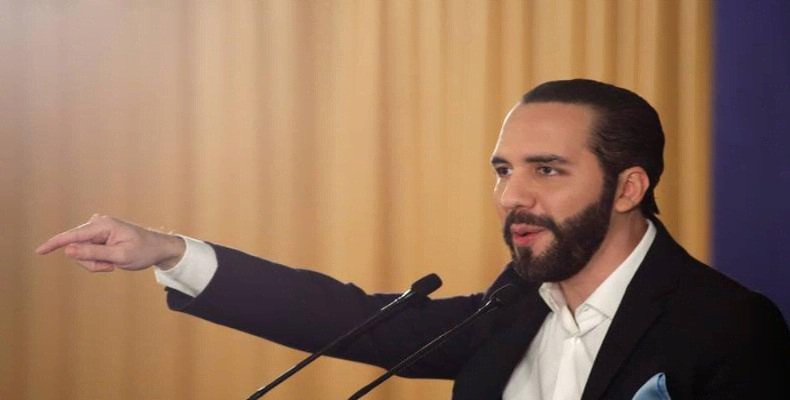
Many Salvadorans describe Bukele as authoritarian. Photo: Archivo/RHC
By María Josefina Arce
Although he still enjoys acceptance, Salvadoran President Nayib Bukele is seeing how little by little this support is being eroded and society's distrust of his administration is growing.
This is evidenced by the new demonstration held in recent days against the course followed by the small Central American nation. It is the third protest so far this year against the president, described by many Salvadorans as authoritarian.
There are several facts and measures adopted by the president that have increased the discontent. Doubts began when in February 2020 he militarized the Legislative Assembly to pressure its members to approve a loan of $109 million to finance a security plan.
In the last months, in conjunction with the new Parliament, which is aligned with his designs, he dismissed the Attorney General and replaced the Constitutional Chamber. The current body decided to allow Bukele's reelection, despite the fact that the Constitution prohibits that option.
Numerous were the criticisms to the President's rejuego. Óscar Ortiz, secretary general of the opposition Farabundo Martí National Liberation Front (Frente Farabundo Martí para la Liberación Nacional), pointed out that one of the greatest blows to democracy and the Constitution was carried out.
The almost immediate reaction of the Supreme Electoral Tribunal, which announced that it would abide by the sentence ordering the registration of Bukele's candidacy for reelection if Bukele requests it, also generated strong questions.
Decree 144, which led to the dismissal of all judges over 60 years of age or with 30 years of experience, which represents a third of the nation's magistrates, was not well received by the citizenry.
Last September's adoption of bitcoin as legal tender further inflamed tensions in the country, where 32% of the population lives in poverty and has no access to new technologies, essential for cryptocurrency transactions.
Rejection and uncertainty caused the presidential decision, approved by the Legislative Assembly, and which, according to experts, has led to losses in government investments, which, however, continues to defend the economic measure.
Opinion polls reveal that at least four out of ten Salvadorans estimate that the country's economy will worsen after the entry into force of the cryptocurrency.
The truth is that once again the big losers are the poorest sectors, for whom COVID-19 meant a greater burden due to the loss of jobs and income.
In two years in office, Bukele has been concentrating power in his hands, but his impositions and his eagerness to stay in the presidency has been taking away followers and support for his administration.

